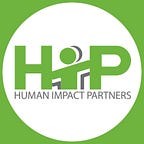Bay Area Takes Steps Towards Resilience in the Face of Climate Crisis
By Amber Akemi Piatt
Over the last several months, I have watched with awe as frontline communities have built support for bold action to address the global climate crisis, including promoting the Green New Deal.
As wildfires, droughts, hurricanes, and other climate disasters ravage our communities, the health of not only our planet but our people are on the line. Indeed, the World Health Organization declared: “Climate change is the greatest threat to global health in the 21st century.”
In these politically and environmentally ominous times, solutions that meet the scale of the problem spark a flame of hope in me for our collective future.
And in HIP’s backyard — the San Francisco Bay Area — we are seeing similar flickers of change.
This March, the Alameda County Board of Supervisors affirmed their support to shift toward more community-centered emergency preparedness approaches that focus on climate disasters despite objection from the Alameda County Sheriff’s Office. Much like the Youth Climate Strike’s platform, the Board’s decision acknowledged the disproportionate brunt that marginalized communities — including communities of color, communities with accessibility needs, and low-income communities — already bear in the face of climate catastrophe.
This culmination of years of community organizing — led by a broad coalition of grassroots community and social justice organizations called the Stop Urban Shield Coalition, of which I am a part — represents a tremendous victory for all those who care about health equity, racial justice, and government transparency. The Board of Supervisors decision rebuked the Sheriff’s Office’s militarized interpretation of emergency preparedness — which over the years has included detonating bombs in nature reserves and collaborating with Immigration and Customs Enforcement and hate groups — and carved out space to invest in the sorts of programs our communities need and deserve.
Ready to move forward, the Board’s vote even included approving a tentative memorandum of understanding with the Approval Authority of the Bay Area Urban Areas Security Initiative (Bay Area UASI), which “provides policy direction and is responsible for final decisions regarding projects and funding” from the $4.7 million grant pool they oversee. However, immediately after the Board voted, the large law enforcement contingent in the room stood in unison and marched out of the chambers. Stop Urban Shield Coalition members looked on with wonder as Sheriff Gregory Ahern denounced the Supervisors’ decision and stormed out the back door.
The Sheriff’s Office refused to join the Board and advocates in this paradigm shift. Interestingly, this dilemma broke open a brand new conversation. The ideas and questions that emerged were a breath of fresh air: What if we led with health and equity in allocating disaster preparedness resources in the Bay Area? What entities are best positioned to work collaboratively with communities that will be hardest hit by climate disasters? What strategies are effective and efficient to prevent, prepare for, and recover from climate disasters? What if we facilitated meaningful community participation in our regional emergency preparedness?
Ultimately, Bay Area UASI chose to reallocate their funds to participating Bay Area cities, counties, and agencies and solicit feedback from community organizations and agencies in the region on how to invest the funding moving forward (which is happening now through this survey).
That is a huge win for our communities. While the Sheriff’s Office repeatedly stoked fear and expressed hostility to reforms, community members and the Board focused on how to prepare the whole community, especially those most vulnerable, for disaster risks.
As the public deliberations have rolled on, I am reminded of the incisive comments from Congresswoman Alexandria Ocasio-Cortez, sponsor of the Green New Deal: “We’ve become so cynical that we view … cynicism as an intellectually superior attitude. We view ambition as youthful naiveté when … the greatest things we have ever accomplished as a society have been ambitious acts of visions.
The Board’s principled stand, and the subsequent actions of Bay Area UASI, put us decisively on an ambitious path toward a future that prioritizes a commitment to our shared humanity as we seek to build a more resilient, healthy, and safe world.
But make no mistake. It will be a long road, and public health has a crucial role to play.
We can mobilize for health equity by centering the leadership and needs of the communities that will be hardest hit by climate catastrophe, increasing a focus on prevention, and insisting on multi-sectorial strategies for disaster preparedness, response, and recovery.
It will take all of us to build the future we dream of.
Live in Northern California? Take Action Now
We strongly urge people in the Bay Area UASI region (Alameda, Contra Costa, Marin, Monterey, Napa, San Benito, San Francisco, San Mateo, Santa Clara, Santa Cruz, Solano, and Sonoma counties) to participate in a brief survey on how to allocate the $4.7 million grant for emergency preparedness regionally before Saturday, June 1.
We need this money to be responsive to community needs! If you would like some guidance or ideas, please do not hesitate to reach out to us by email at advocacy@humanimpact.org.
Amber Akemi Piatt is the Health Instead of Punishment Program Director at Human Impact Partners.
